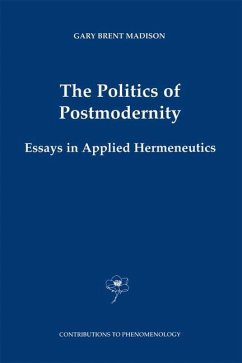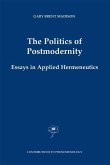The distinctive feature of Madison's political theory is the Merleau-Pontyan sense of contingency that pervades his writings on the subject and, indeed, is visible throughout his entire oeuvre. The perspicacity of Madison's view of con tingency was first noted by Paul Ricoeur. In his foreword to the English transla tion of Madison's now classic study of the philosophy of Merleau-Ponty, Ricoeur wrote: "More than anything, the most penetrating view which Gary Madison proposes of Merleau-Ponty's final ontology concerns the paradox of contingency. "! Twenty-eight years after the original French publication of his dissertation, we may look back over Madison's work and interpret it as working out Merleau-Ponty's insights into the implications of contingency for human political reality within the framework of a hermeneutical theory of democracy. The spirit of Merleau-Ponty's understanding of the emergence of Being at the heart of contingency and of contingency at the heart of Being is carried forward in Madison's articulation of a nondogmatic politics of communicative rational ity. Madison's postmodern liberalism is unique in seeking to articulate a specifi cally and explicitly hermeneutical politics, one that attempts to draw out the ul timate praxial consequences of phenomenological hermeneutics. As might be expected from a political-economic theory of communicative rationality, Madi son's thinking takes shape through a dialectical confrontation with a number of prominent contemporary writers-Derrida, Rorty, and Habermas, in particular.








